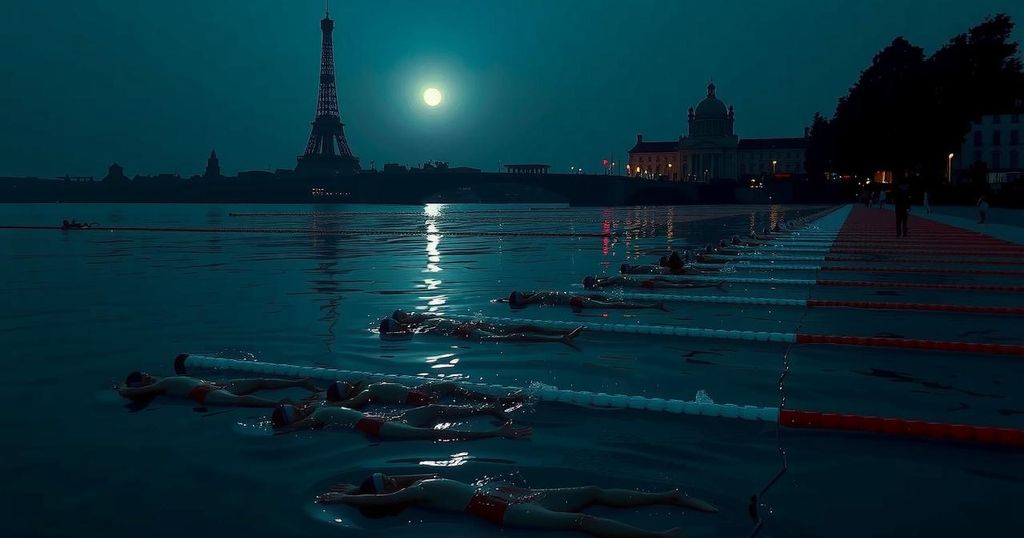Health Concerns Arise as German Swimmers Fall Ill After Competing in Seine River at Paris Olympics
Summary
Three German open water swimmers, including Leonie Beck, became ill after competing in events at the 2024 Summer Olympics in the Seine River. Despite the illness reports, officials from the German Olympic Sports Confederation and Paris organizers stated the water quality was deemed safe for competition, emphasizing no direct link between the river water and the athletes’ conditions had been established.
Three German open water swimmers reported falling ill after competing in the marathon swimming events during the 2024 Summer Olympics held in Paris. The competitors had participated in the races conducted in the Seine River, which has faced scrutiny due to its long history of pollution. Specifically, Leonie Beck, who secured ninth place in the women’s 10-kilometer race, disclosed her condition through social media, indicating she experienced severe gastrointestinal distress. Despite the illnesses, initial statements from the German Olympic Sports Confederation did not identify the affected athletes fully. Following their treatment, it was confirmed that all athletes involved were recovering and expected to complete their travel arrangements home as planned. Beck stated, “Vomited 9 times yesterday + diarrhea,” alongside a sarcastic remark about the water quality, even as the German committee confirmed that two of their athletes were treated for nausea and diarrhea, with another swimmer showing similar symptoms needing medical attention from the team doctors. The competition continued to proceed despite concerns over the water quality in the Seine, as officials from the Paris organizing committee, along with World Aquatics, reported that the water quality remained within acceptable limits. Moreover, rigorous testing protocols were implemented to establish safety before commencing both the open water swimming events and the triathlons. While several athletes claimed to have fallen ill following their competitions, the German committee indicated that a direct link between the illnesses and the Seine River’s water quality had not been substantiated. Furthermore, some swimmers, including women’s gold medalist Sharon van Rouwendaal of the Netherlands, noted their own experiences of ingesting the river water without issue during the race. On an official note, the Paris organizing committee expressed their concern regarding the athletes’ health and their wishes for a swift recovery, emphasizing that no established connection between the reported illnesses and water quality was identified following comprehensive testing on race day.
The Seine River in Paris has a complex history with pollution, having been declared off-limits for swimming for over a century. The recent decision to host open water swimming events in the river has sparked significant concern among athletes, governing bodies, and the public regarding the potential health risks associated with its waters. Although extensive rehabilitation efforts have been made to improve the water quality, past readings indicated concerning levels of bacteria that could lead to illness. This situation raises questions about the adequacy of current safety standards in light of the increased number of athletes and events taking place on the river’s surface during the Olympic Games.
In summary, the incident involving three German open water swimmers falling ill raised significant concerns about the water quality in the Seine River amid the ongoing Olympic events. Although the athletes reported gastrointestinal distress after their races, officials maintained that the water quality met safety standards prior to the competitions. As the athletes recover and continue their Olympic participation, the incident highlights the balancing act of sporting events in potentially problematic environments and the ongoing need for strict health protocols.
Original Source: apnews.com








Post Comment